The Arms Control Association steers or supports a number of issue-specific projects related to today's most pressing weapons-related security challenges. Below is information on our current and past special projects and how to learn more.
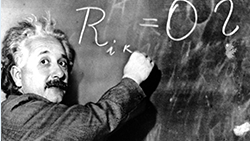 | The Physicists Coalition for Nuclear Threat Reduction is a national network of physicists and physical scientists in the United States working to inform and mobilize action by the physical sciences community in the United States and internationally. The Coalition, which is co-hosted at ACA, works to advance changes in nuclear arsenals, force postures, budgets, and declaratory policies that reduce the role and salience of nuclear weapons, reinforce the taboos against their possession, use, and testing and meet the obligation to achieve nuclear disarmament. Coalition experts deliver colloquia on nuclear weapons issues at campuses and foster local and national engagement. |
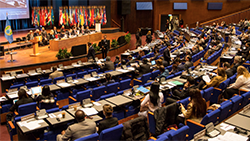
| The Chemical Weapons Convention Coalition (CWCC) is an independent, international body whose mission is to support the aims of the Chemical Weapons Convention (CWC) and to supplement the efforts of the member states of the Organisation for the Prohibition of Chemical Weapons (OPCW), with focused civil society action aimed at achieving full membership of the CWC, the safe and timely elimination of all chemical weapons, and preventing the misuse of chemicals for hostile purposes and promoting their peaceful use. In 2022, the CWCC was a recipient of the Hague Award for Peace. |
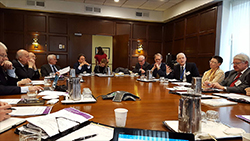
| The Commission on Challenges to Deep Cuts, which was established in 2013, is an independent experts group composed of 21-members from the United States, Germany, and Russia. Its mission is to devise and promote concepts on how to overcome current challenges to deeper nuclear weapons reductions. Through means of realistic analyses and specific recommendations, the Commission strives to translate the already existing political commitments to further nuclear reductions into concrete and feasible action. The Commission is hosted by the Hamburg Peace Research Institute and the Arms Control Association is the project’s lead U.S. partner. |
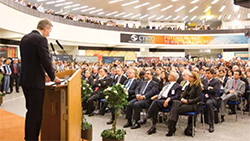 | The Project for the CTBT is an initiative of the Arms Control Association that supports the work of NGOs and experts to build public and policymaker understanding and entry into force of the CTBT. Launched in 2008 at a time of renewed interest in the United States on the treaty, the project’s purpose is to provide information on the history and issues surrounding the Comprehensive Test Ban Treaty, and reports on key developments relating to nuclear testing, the work of the Comprehensive Nuclear Test Ban Treaty Organization (CTBTO), and progress toward entry into force of the CTBT. The project is in "standby" mode. |
 | The Forum on the Arms Trade, this former project of the Arms Control Association is a network of civil society experts and a point of contact for strengthening public efforts to address the humanitarian, economic, and other implications of arms transfers, security assistance, and weapons use. As of October 2023, the Forum became a project of the Center for International Policy and provides brings together information and analysis from experts on human rights, development, arms control, humanitarian disarmament, cybersecurity, arms and the environment, anti-corruption, and related fields from around the world. |
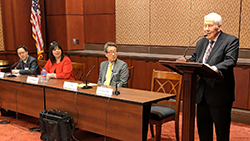
| From 2013-2021, the Arms Control Association and The Lugar Center organized the Bipartisan Nuclear Policy Dialogue Project, a series of private dinners and congressional briefings on nuclear weapons policy issue of interest to Republican and Democratic congressional staff. The program does not seek any policy outcome or enactment of any legislation. The project mission is to provide a forum where senior national security staff across committee jurisdictions and party affiliations can establish relationships and a basis for working together more effectively, as well as increase the overall knowledge base and awareness of nuclear risks and risk reduction strategies. |
 | Launched in July of 2025, the Call to Halt and Reverse the Nuclear Arms Race serves as a rallying point for institutions, civil society leaders, scholars, public officials, and more. Read the Call, which has been signed by 50+ organizations and numerous other individuals. This platform is also a designated action hub with a variety of resources and ways to get involved in bringing the world back from the nuclear brink. |
